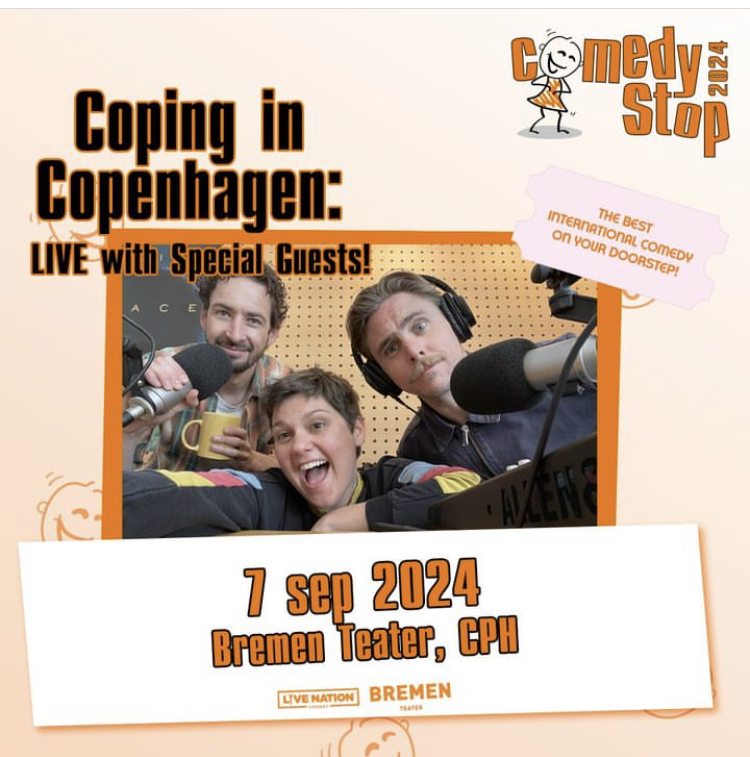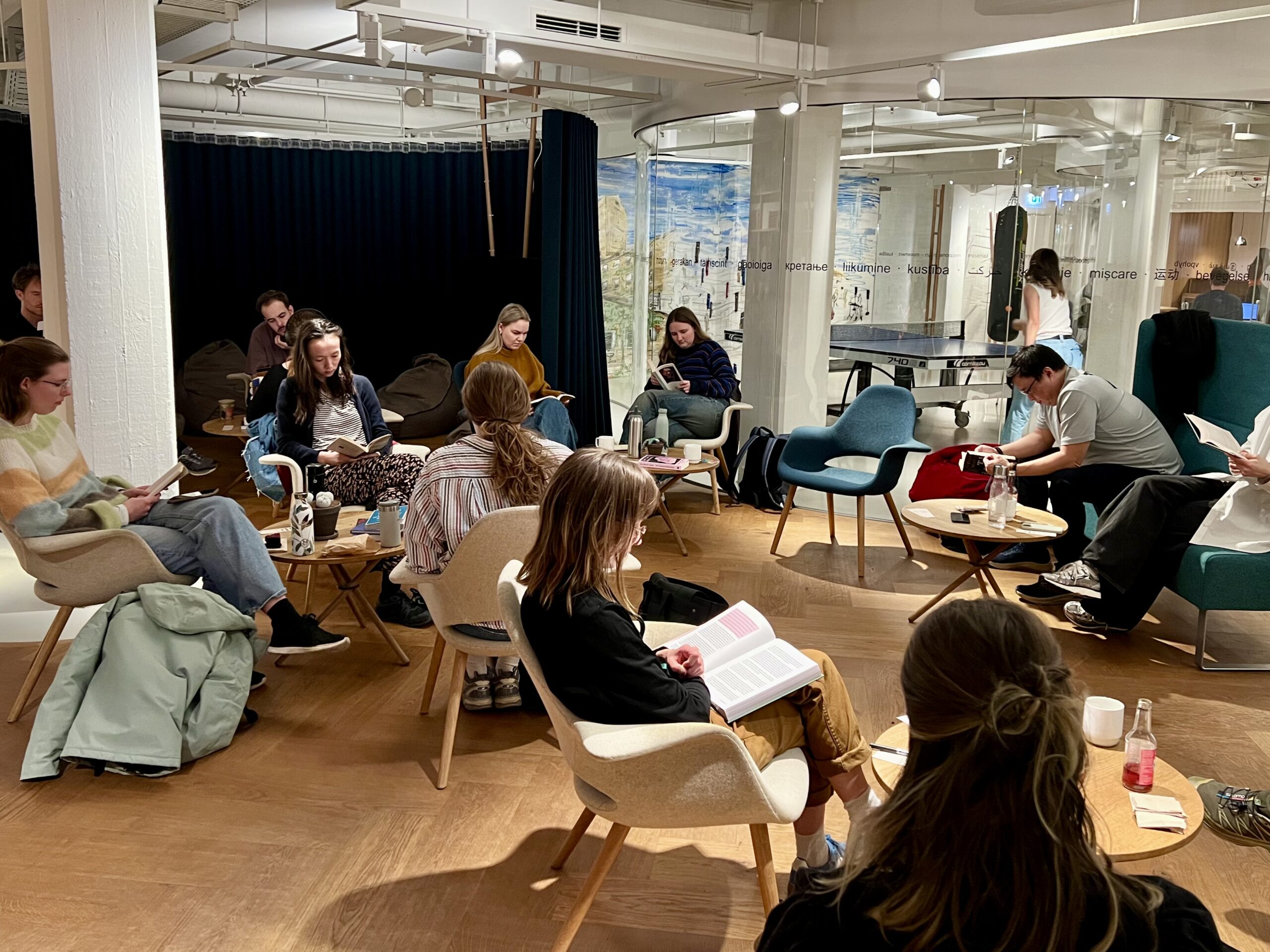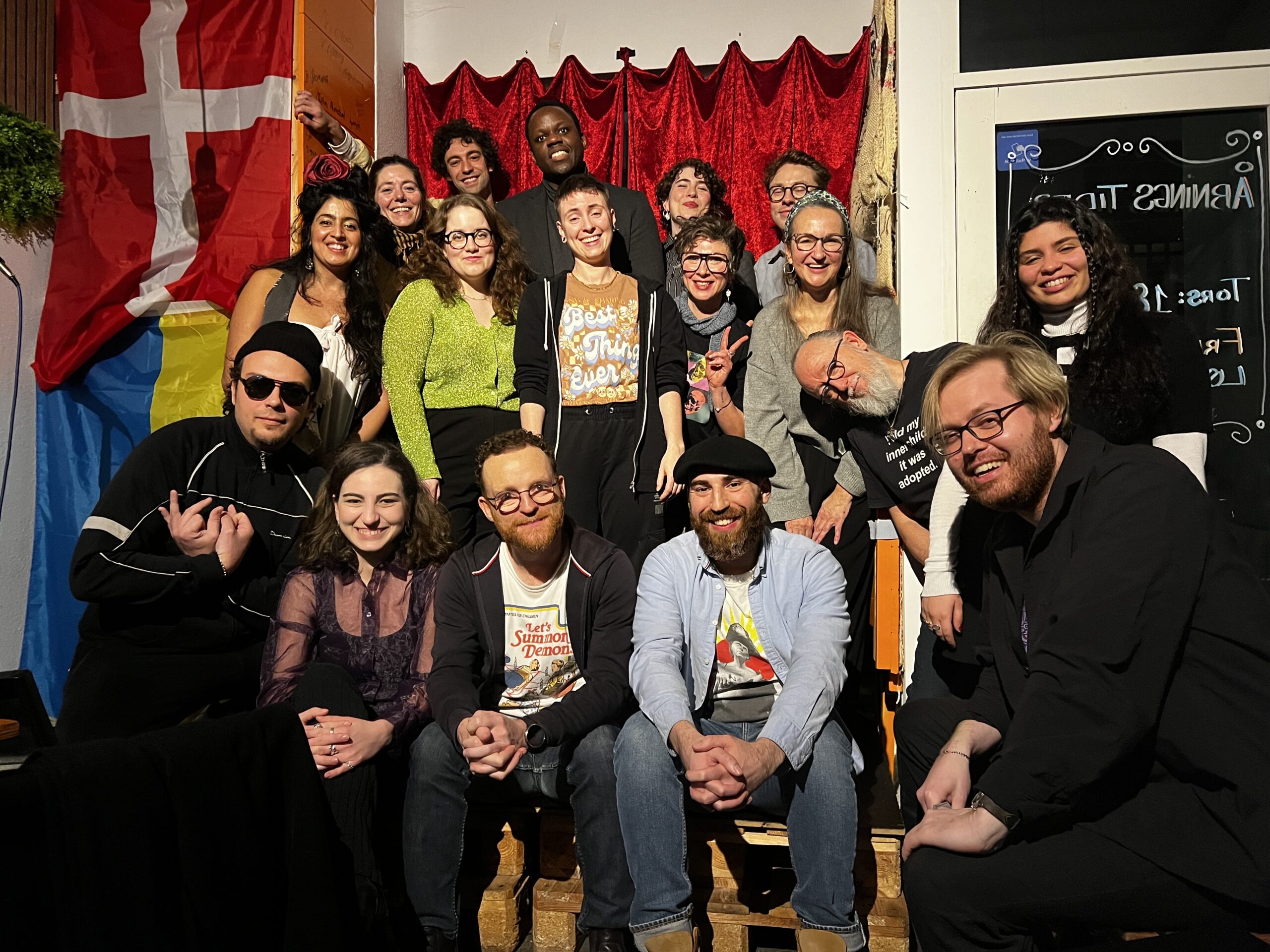This week, the Danish capital will see the first-ever Copenhagen Comedy Stop festival, featuring fantastic and well-loved English-speaking comedians from the UK and America.
Performances will take place across Copenhagen and Aalborg, with acts like Katherine Ryan and Ronny Chieng, as well as local talents like Conrad Molden.
Coping in Copenhagen – my podcast about the idiosyncrasies of Danish life and current affairs, which you can listen to on The Copenhagen Post‘s website – will also be part of the event.
While my co-hosts, Abby Wambaugh, Marius Leth, and I prepare for our live show at Bremen and stew in the excitement of being part of an excellent lineup, I can’t help but feel that we are also part of a mini seismic shift in Danish pop culture. I know that’s an oxymoron, but that’s how it feels.
In the seven years I have lived here, I’ve had the impression that the arts in Denmark—music, film, and comedy—and, by extension, the audience, have held somewhat insular values.
Please let me clarify: I’m not detracting from Danish creativity! I’m a huge fan of Frank Hvam and Casper Christensen. Thomas Vinterberg’s movies are fantastic. Then there are the old Olsen Gang movies – Danes are good at what they do. But mention Minds of 99 beyond the borders, and you’ll get a blank face, my friend.
It just felt like things were created with Danish values in mind first and foremost, and if other people liked it, hey, that was great.
You could say it’s mostly in Danish, so of course, it will seem Danish-centric. And to a certain extent, that’s true. But there is a certain sensibility Danes bring to their art that I don’t think you will find in other cultures.
This mentality could stem as far back as 1864 when Denmark suffered great losses in a war against Prussia and Austria. The industrialist Enrico Mylius Dalgas is rumored to have said, “What is lost externally must be gained internally”. And so, the conservation of Danish culture began.
For a long time, I felt like this was reflected in the amount of English-language comedy in Denmark.
Sure, you’d get some big names coming through the DR Concert Hall every now and then, but for a long time, there was very little happening in the way of stand-up and improv comedy on a local level. Now, there isn’t a week that goes by when you can’t find an English comedy event.
I believe this has come from a newfound willingness in Denmark to embrace other people’s sense of humor and sensibilities, as if Denmark has realized it was part of a bigger cultural picture all along.
We in the English-language comedy scene recognize the responsibility of the gift we have been given. We keep our Danish audience in mind and make sure everyone feels comfortable and hyggelig.
But this Copenhagen Comedy Stop festival is the dawn of a new phase in pop culture.
It might be a sign that Denmark is ready to open its doors to the international trade of art and laughter.
This festival of outsider comedy acts is the first step in the right direction. Just think—we could see more and more events come through Denmark. We could see Danes venture further out with their work and open up to collaborations. We could see an amalgamation of the English scene and Danish scene here in Copenhagen.
There is so much to experience and even more to offer.
So come be part of the revolution. Come by and see new comedians this week!
Copenhagen Comedy Stop takes place from 4-8 September in Copenhagen and Aalborg.
More information and tickets
















